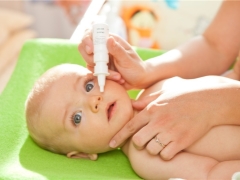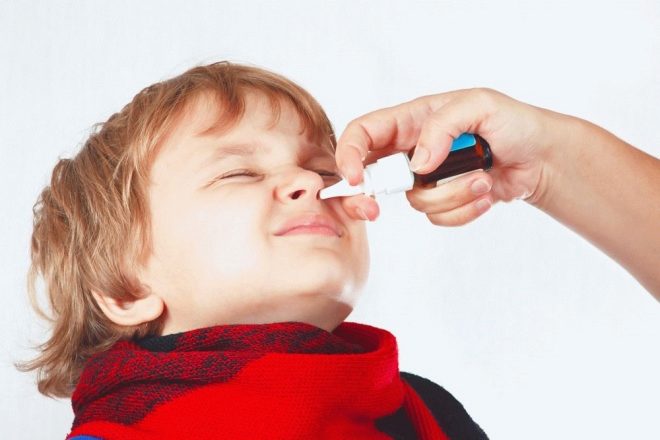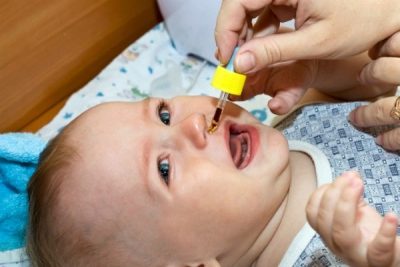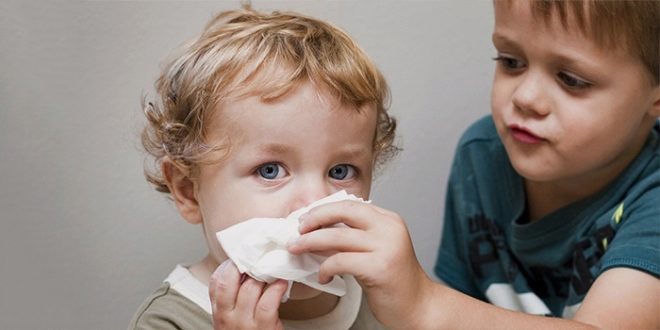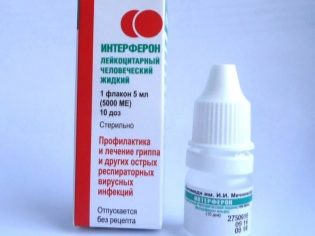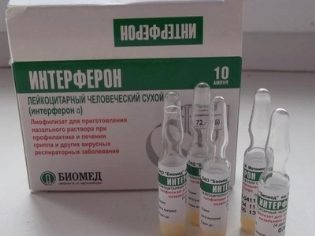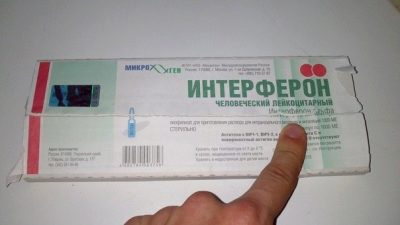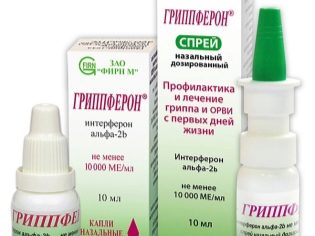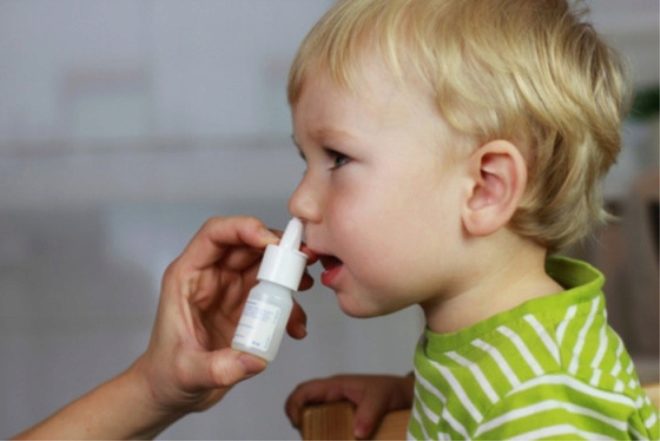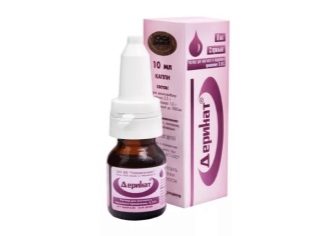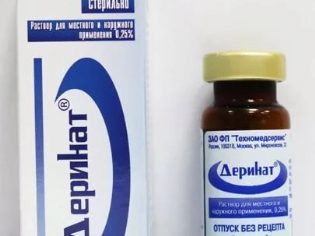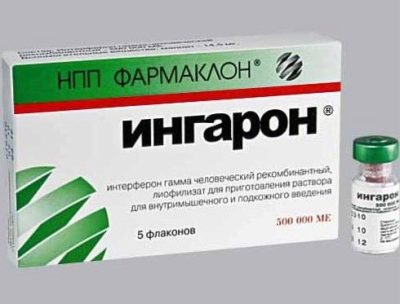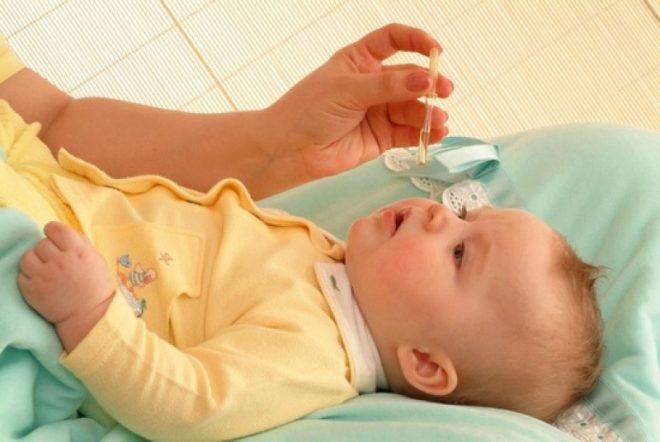Antiviral nasal drops for children
A runny nose in a baby is not a rare phenomenon. But rhinitis rhinitis discord, and to treat the child every time with drops of onion or beet juice - not the best solution. After all, nasal congestion and snot can be caused by various reasons - active reproduction of pathogenic bacteria, viruses, allergic reactions, mechanical damage, and so on.
And therefore experts nominate drops in the nose only after they understand what illness they are dealing with by their origin.
Bacterial rhinitis needs treatment drops with antibiotics, and allergies will require antihistamines. Today we will talk about drops with antiviral effect. They are used to treat rhinitis caused by viral infections.
Operating principle
Nasal drops with antiviral effects contain a certain amount of substances active against certain viruses, usually the most common viruses of influenza A and B, herpes simplex, etc.
It is no secret that viruses enter the child’s body most often through the nose and throat. That is why the drops help to stop the “invader” in time practically in the place of its penetration.
Nasal preparations have a direct effect on viruses, that is, they suppress their ability to reproduce, to leave their affected child’s cell, a copy of the virus.. In addition, such drugs have a pronounced immunomodulatory effect, in other words, after instillation, the active ingredients activate the child’s immunity to the fight against a foreign body that has not been presented with good intentions.
Some nasal antiviral drugs contain interferon, a protein identical to the eponymous compound that is produced by the body during the immune response.
Efficiency
It’s quite difficult to answer the question of which drops are the most effective, since the clinical effectiveness of most antiviral drugs has not been proven to date. Many doctors believe that a cure for ARVI and flu, together with their unpleasant symptoms, is possible without antiviral drugs, only with the help of our own efforts of immunity.
We invite you to familiarize yourself with the release of Dr. Komarovsky about children's rhinitis and antiviral drops.
Increasingly, doctors are talking about immune disorders that occur in the child's body, if he is often given antiviral medications. After all, artificially stimulating natural defense is a kind of violence against nature.
Immunity must independently learn to recognize viruses and resist them. And from the regular use of drugs that affect the work of immunity, protection becomes weaker, "lazier." As a result, the parents get the opposite effect - the child seems to be properly treated, and he increasingly begins to get sick, and every time the diseases get more and more difficult.
It is for this reason that it is not necessary to drop antiviral drops to a child without an appropriate doctor's prescription.
Often, antiviral drops are used as a means of preventing flu and ARVI. Doctors recommend starting instillation at the first symptoms of a viral infection. The fact is that most of the drugs created to resist viruses, have a certain effect only in the first 36 hours after infection.It is believed that later the drugs of this group do not give any result at all.
Form benefits
Nose drops is a dosage form that is especially convenient for children. Moreover, the age of the kids almost does not play a role. Nasal remedies are equally well tolerated by newborns and adolescents.
Antiviral drops are not always sold in pharmacies exactly in our usual form, ready for instillation. Often drugs are found in the form of powders, which should be diluted at home in exact concentration for subsequent nasal application. Pharmacists can also offer solutions.
Popular children's nose drops from viruses
Interferon
This is the most popular tool in the family of antiviral interferon preparations. It consists of human leukocyte interferon, obtained in the laboratory by an artificial "collision" of the virus with donor blood cells. The second method of producing interferon is genetically engineered to add the human gene to the virus DNA. As a result, protein begins to be produced. This interferon has no direct effect on viruses, but it activates the baby’s own immunity almost immediately after contact with the nasopharyngeal mucous membranes. The spread of viral infection slows as a result.
And here is a small fragment about interferon in the interpretation of Doctor Komarovsky.
The drug can be bought at any pharmacy without a prescription. Pharmacists offer it in the form of a powder that parents can easily dilute with cooled boiled or distilled water. In addition, the drug exists in spray form and with a convenient dispenser.
Manufacturers recommend the use of "Interferon" for the prevention of influenza and ARVI with the height of the seasonal increase in the incidence, and also used for medicinal purposes at the first signs of the beginning disease. The therapeutic dose in this case will be 2 times higher than the dose for prophylaxis.
Children drug prescribed from birth. When the disease begins, it is required to bury it in each nostril intensively - every hour. After dissolving the powder, the resulting pinkish liquid is stored in the refrigerator for no more than a day, the expired drops are ineffective.
The course of treatment is from 3 to 5 days. Prevention can last 2 weeks, during which Interferon will need to bury 5 drops twice a day in each nostril.
Contraindications for the drug are available, and parents must find out before using them. "Interferon" is not recommended for children with diseases of the kidneys, liver, heart and blood vessels, a strong tendency to allergies.
Grippferon and Nazoferon
The basis of these droplets is the recombinant interferon protein obtained by gene engineers in the manner described above. On the shelves of pharmacies, the medicine is also presented in two versions - drops and spray. Moreover, both forms are completely ready for use, and the packages are equipped with convenient plastic dispensers. "Grippferon"And" Nazoferon "you can bury even babies. But consultation of the doctor is obligatory, as preparations can cause significant allergic reactions.
Manufacturers claim that Nazoferon and Grippferon are capable of stopping the development of a viral infection in 45% of cases, provided that the administration starts in the first hours of the disease.
The course of treatment with drugs - 5 days. Babies are prescribed five times one dose at a time. Children from 1 to 3 years old are buried in 2 doses 3 times a day, older children three years oldschoolchildren and adolescents can be dripped five times a day, 2 doses. 1 dose = 1 drop.
For the prevention of respiratory viral infections, it is recommended to use the medicine in the same doses, but 1 time in two days.
Derinat
Very popular tool that can hardly be called exclusively antiviral. The drug does not contain interferon, in its composition of salt, including DNA, and purified water.Derinat is resistant not only to viruses, but also to some bacteria, and a number of fungi. An immunomodulator medication helps the mucous membranes of the nasopharynx to recover from damage, as it has a regenerating effect.
Parents should be aware that in rare cases, the drug causes severe allergies, up to urticaria with edema, which require urgent medical attention for health reasons.
Derinat is sold in a special 10 ml dropper bottle with a convenient dispenser. A solution of 0.25% is completely ready for use. Spray "Derinat" for nasal use is not intended, it is used only for the treatment of inflammatory processes in the throat.
Means can bury kids up to a year, but only on prescription by a doctor in his prescribed personal dosage. Older kids 1 year therapeutic dose ranges from 3 to 5 droplets in each nostril up to 6 times per day.
We also suggest listening to the annotation about the “Derinat” drops from the specialist of the Healthy Topic portal.
Ingaron
This drug based on interferon is not intended for small children, it can be started to give the child after 7 years. The undoubted advantage of this medication is that it can be used at almost any stage of the disease, and not only at the very beginning, like most other antiviral drugs.
The drug is sold in the form of powders, which should be independently diluted with distilled water in the concentration indicated in the instruction. In the package you will find a cap-pipette, which will allow not to be mistaken with the dosage.
In the acute phase of a viral infection, a child can be instilled into the nostrils by 2-3 drops up to 5 times a day. The average course of treatment is about a week.
General recommendations
Antiviral nasal drops for children should not be used more than twice a year, as this is fraught with negative changes in the immune system of the child. Frequent use of interferon can lead to a significant reduction in the production of its own interferon in a child, and immunodeficiency will occur.
Interferon drops can not be used simultaneously with drugs from the common cold, which have a vasoconstrictor effect. Such a medical "duet" can lead to excessive dryness of the mucous membranes.
Antiviral nasal drops for children most often do not act as an independent remedy for treatment. Usually the doctor prescribes from within the complex therapy. Therefore, to rely on the wonderful effect of drops, if they are taken “alone” is not worth it.
Warm the bottle in hand before dropping, the drops must be warm. In cases of severe rhinitis, it is advisable to pre-rinse the sinuses with saline or furatsilina solution.
